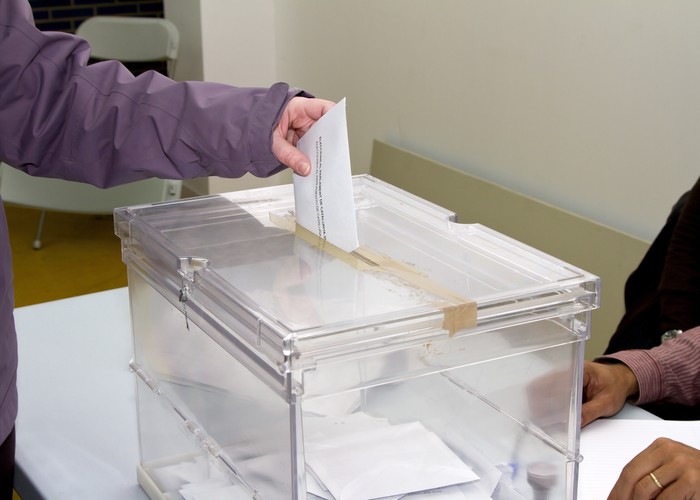MADRID – A poll shows that the ultra-nationalist Vox would win seats if elections were held today. Despite this, there is unprecedented support for the left-wing government’s handling of the economy and the coronavirus pandemic.
With two years to go before the country holds another general election, the Spanish political landscape appears to be increasingly fragmented. The 40dB poll published by EL PAÍS and Cadena SER radio gives the ruling Socialist Party (PSOE) a narrow victory. But there is also a clear rise from the right. This is despite broad support for government policies on the economy, the pandemic, and digitalisation.
PP and Vox gain ground
If elections were held today, the conservative People’s Party (PP) and the ultra-nationalist Vox would gain ground. Together they gain some 30 seats more than the Socialist Party (PSOE) and Unidas Podemos, the current coalition partners.
Socialists still first
However, the PSOE’s small loss would not be enough for the PP to win the election. The Socialists would come first with 26.1% of the vote, two points less than the 2019 elections, good for 108 of the total 350 seats to be won (12 fewer). The Conservatives would win 23.5% of the vote, 2.7 points more than in 2019, good for 100 seats (11 more).
Poll: 66 seats for Vox
The far-right Vox would receive 18.3% of the vote, 66 seats, compared to 52 now. Whereas, Unidas Podemos would lose four of its 35 seats. Ciudadanos (Citizens), part of the liberal alliance in the European Parliament, would see its demise confirmed with just two seats out of 10 it managed to secure in 2019.
Complicated Negotiations
This result suggests smaller and smaller differences between the parties. Therefore, this will require complicated negotiations to form a government. The November 2019 elections were the fourth in four years. Two of these were necessary because the parties were unable to reach a coalition agreement based on the previous election results.
Protest parties
For decades, PSOE and PP took turns in power, but the 2008 economic crisis sparked protests. Since then, Spanish politics has faced a lack of clear parliamentary majorities. The absolute majority in the 350-member Congress of Deputies is set at 176 seats.
PP’s ‘denial policy’
Commenting on Monday’s poll, Prime Minister Pedro Sánchez blamed the PP’s “denial policy” for the rise of the far-right. “There are collectives who feel that democracy is not an efficient tool to meet their demands,” he told Cadena SER. “And they follow authoritarian leaders, that’s what the far right stands for. Right now, the political denial is fueling the far right, and that’s due to the right. That is why it is very important to continue with reforms that are in the interest of citizens.” Sánchez added that he will introduce new reforms over the next two years, including one to the tax system.
Support for economic and health policies
The poll, conducted among 2000 respondents, shows broad support for many aspects of government policy. Nevertheless, the general image of the government is bad. Of the socialist voters, 30% qualify it as “incompetent”.
More confidence in the political left than in the right
But for the first time in decades, Spaniards seem to rely more on the political left than the right for efficient economic policies. The PSOE was seen by 22.4% of respondents as better able to improve the economic situation. This compared to 21.1% who preferred the PP. In addition, 22.2% thought the PSOE was better at creating new jobs than the PP (20%). As for the management of European recovery funds, 25.2% said the Sanchez government is better able to do this, compared to 17.7% who supported the party led by Pablo Casado (PP). In terms of digitisation efforts, 22.2% favoured the PSOE versus 17.4% supporting the PP.
Largest debt burden in EU
Spanish citizens traditionally have more faith in the right when it comes to economic policy and the left when it comes to social issues. This time, despite increased political polarization and the impact of the coronavirus pandemic, respondents responded positively to the recent job growth. The total number of jobs is back to pre-pandemic levels. However, GDP growth is lagging behind job growth and Spain is still one of the most indebted countries in the European Union. Furthermore, inflation and rising electricity prices have also become thorny issues raised by the opposition to the government.
While Spain is now deep in its sixth wave of the coronavirus pandemic, the government is receiving widespread support for its health policies, especially for the success of the vaccination campaign.
Catalonia
The PSOE emerged as the party of choice to tackle Spain’s most pressing problems. One is the issue of Catalan independence (18%). Although the pardons the government granted imprisoned leaders of the 2017 unilateral attempt at secession last year have been widely rejected.
Now, this poll shows Vox ranks second as the best party to tackle the Catalan issue (17%), ahead of the PP (13%) and Unidas Podemos (11%). The far-right party is in favour of lifting the Catalan self-government. Almost 10% of PSOE voters support this option, 28% of PP voters, 21.5% of Ciudadanos voters, and 0.7% of the Podemos voters do so.


